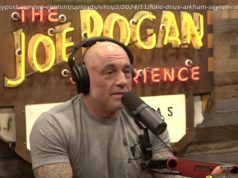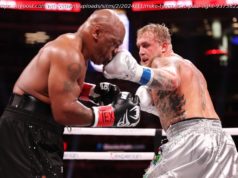President’s son calls meeting with Russian lawyer run-of-the-mill ‚opposition research.‘ Some campaign veterans disagree.
WASHINGTON — Donald Trump Jr. casts his willingness to hear potential Russian dirt about Hillary Clinton as standard opposition research into a political rival.
But opposition research normally involves slogging through public records, poring over candidate statements and tracking a politician’s every public appearance, hoping to uncover damaging material — not a meeting of high-ranking campaign aides with someone they believed represented a hostile foreign government, several campaign and ethics experts told USA TODAY.
“It’s called spying, not opposition research, ” Richard Painter, President George W. Bush’s former ethics lawyer and a frequent critic of President Trump’s activities, said of any information gleaned from Russian sources during the 2016 campaign.
“I don’ t know many people who would have done this, ” said Larry Noble, a former top Federal Election Commission lawyer who is now at the nonpartisan Campaign Legal Center. “Most people have this sense that American elections should not be influenced by foreign interests.”
However, others in the no-holds-barred world of political intelligence said it made perfect sense for someone in the Trump campaign to meet with Russian lawyer Natalia Veselnitskaya, described to the younger Trump by an intermediary as possessing incriminating material about Clinton.
But Jeff Berkowitz, a veteran Republican opposition researcher, said the task instead should have fallen to a lower-level campaign researcher or paid consultant, rather than the candidate’s son. Berkowitz, a former White House official who worked as research director for the Republican National Committee and Rudy Giuliani’s 2008 presidential campaign, said the revelations about the younger Trump’s meeting with the Russian also serve to underscore the bare-bones nature of his father’s unorthodox political operation.
The senior Trump, a novice to politics, defied convention by running his 2016 presidential campaign aided by a core group of family members and a few dozen staffers and consultants, compared to the hundreds on Clinton’s campaign workforce.
“You didn’ t have gatekeepers to handle these things and decide whether it was something useful, ” Berkowitz said of advance vetting of the Veselnitskaya meeting.
“Everyone in politics would have taken that meeting. This is the nature of politics, ” he said. But, he added: “It just should have been someone other than Donald Jr.”
The strategy of casting the younger Trump’s meeting with the Russian lawyer as standard political research by the campaign came as the White House worked to manage the fallout from revelations that the president’s son eagerly welcomed help from someone described to him as a “Russian government attorney.”
“For me, this was opposition research, ” the president’s oldest son told Sean Hannity during an appearance on Fox News on Tuesday night, hours after he released a string of emails about the meeting. “They had something, you know, maybe concrete evidence to all the stories I’ d be hearing about… so I think I wanted to hear it out.”
The emails show he was told by an intermediary that he would receive “high level and sensitive information” about Clinton as “part of Russia and its government’s support for Mr. Trump.”
“If it’s what you say I love it, ” Trump Jr. wrote back.
He, then-campaign chairman Paul Manafort and Jared Kushner, Trump’s brother-in-law and now a senior adviser in the White House, met June 9 with Veselnitskaya, right after Trump clinched the Republican nomination.
Trump Jr., who now helps oversee his father’s real-estate and branding empire, said the meeting yielded nothing useful about Clinton and focused instead on a 2012 U. S. law imposing sanctions on Russia.
Veselnitskaya has denied discussing any compromising material about Clinton or working on behalf of Russian authorities.
Rodell Mollineau, a Democratic strategist who oversaw an opposition-research group during the 2012 presidential and congressional elections, said the language in the emails about the Russian government’s role should have raised a “red flag” for the younger Trump.
“I would like to think that seeing that sentence would have been enough for me to say, ‘pass,’ because of the involvement of a foreign government, ” said Mollineau, who spent two years at the helm of American Bridge 21st Century, the leading opposition research hub for liberal groups.
“I don’ t understand how a person running a multimillion-dollar corporation on behalf of his father doesn’ t understand that, ” Mollineau said.
Trump Jr. now also faces a myriad of questions about whether he broke federal law with the meeting. A liberal group, Common Cause, contends he likely did because it is illegal to solicit and accept foreign contributions, even in-kind donations of goods and services.
Charles Spies, a top Republican lawyer who ran super PACs aligned with GOP presidential contenders Mitt Romney and Jeb Bush, called that interpretation a “stretch” by “unhinged liberal lawyers.”
He said Trump Jr. would have had to “explicitly solicited” something of “defined value” to breach election law. Agreeing to listen to someone who might have damaging material about your rival does not amount to accepting a political contribution, he said.
“Donors and supporters reach out all the time to tell you, ‘I have critical information that is the key to winning,’ ” Spies said. By that standard, he said, “every town hall meeting a campaign conducted” to solicit advice from backers would amount to a political donation.
Start
United States
USA — mix Donald Trump Jr.'s Russian meeting: An unusual way of conducting political research






